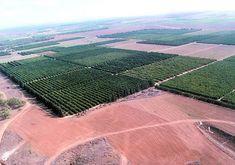
The arrangement between Israel and the EU regarding marking the origin of exports to the EU comes into effect from the beginning of this month (February).
The marking identifies whether goods - fresh produce included - are produced within Israel or in the territories, namely the West Bank and the Gaza Region.
The agreement, reached after a five-year dispute, has been negotiated by Israel's Minister of Industry and Trade Ehud Olmert and the EU Trade Commissioner Pascal Lamy.
During the five-year dispute, EU's customs authorities imposed quotas and deposits on Israeli exports originating both within the Green Line and the territories. Israeli settlements in the Gaza Region export about $120 million worth of fresh produce to EU member countries, and the customs duties imposed on their goods amounted to about $8m.
Israel's total exports to the EU were $7.2 billion in 2003, and are estimated to climb to $10bn in 2004.
Minister Olmert was quoted in the media saying the agreement was to free exports to Europe from uncertainty and to improve the overall economic and political climate between the two parties.
He added that the state would compensate exporters of goods from the territories for customs duties imposed on the goods they ship to EU member countries.
As a result of the agreement, the EU has already promised to include Israel in the Pan-European accumulation system, involving the EU, EFTA countries, the countries of Eastern Europe and Turkey.
This means that Israeli agricultural enterprises, among other ventures, will be able to jointly produce goods in Israel and in Eastern European countries and in Jordan, and still be exempt from customs duties in the EU member states.
Israel has a number of agricultural joint ventures in Turkey, Jordan and Romania, which might, according to the new deal, boost Israeli trade.



